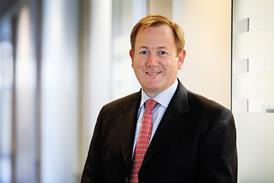Landlords may require tenants to meet sustainability standards or share space with community groups


In recent years, there has been an increased focus on environmental provisions in leases, such as waste management policies, sharing data about water and energy usage, and prohibitions on work that would damage a building’s EPC rating. Some parties are going further and incorporating circular economy principles for repairs and alterations, or obligations to obtain electricity from renewable sources.
So what can landlords with high environmental, social and governance (ESG) standards do to filter these principles down to tenants? And how could an increased focus on social responsibility benefit landlords, tenants and local communities?
Businesses are increasingly aware of the impact (positive and negative) of the associations they make. If ESG is high on a company’s agenda, letting its property to a tenant with poor ESG credentials could damage its reputation. So what should landlords think about in terms of lease drafting to help make a positive social difference?
First, while a landlord can ensure the initial tenant’s views on ESG comply with its standards, control will be required in the lease to ensure these values continue to be upheld when that tenant exits the premises. That could mean including terms dictating the parties to whom the lease could be assigned or sublet, and their ESG credentials.
Rather than controlling who the lease is assigned or sublet to, the landlord may choose to include prescriptive lease provisions governing the tenant’s operations; for example, preventing the use of single-use plastics or having sustainable procurement practices or inclusive employment policies.
But how far should the landlord go in setting such terms? Arguably, it should only dictate what a tenant can do in relation to the property, and the effect its actions could have on the value of the landlord’s investment in the property. Going further than this and setting out how the tenant should operate its business might be a step too far. Some tenants will reject such provisions, while others may accept this kind of drafting as something they are already committed to.
Community initiatives
![]()
Landlords can also require space to be shared with community groups. Many office buildings have common areas that are unused outside office hours. Access to these can be obtained without entering the offices, so, generally, their use by community groups will not pose a security risk to office occupiers. But it can provide community groups with much-needed space and engender a sense of community, breaking down barriers between the business and residential uses.
Landlords might consider providing local social entrepreneurs with free meeting or event space to help build their local network and market presence; or support local charities tackling isolation and social exclusion by offering a safe, welcoming, centrally located meeting space.
One final element landlords should consider before including extensive ESG lease provisions is the effect it will have on rent reviews (presuming rent is being reviewed on an open-market basis). Such provisions are not yet market standard, so could have a negative impact on rent reviews – something the landlord is likely to want to avoid.
The ‘S’ of ESG is increasingly coming into focus, and so is the real estate industry’s potential to have a positive social impact through buildings. Translating that potential into the specifics of lease negotiations is one way we may see more progress.
Alexandra Holsgrove Jones is senior knowledge lawyer at law firm TLT, and Giles Edwards is associate director at real estate investor Fore Partnership
































No comments yet